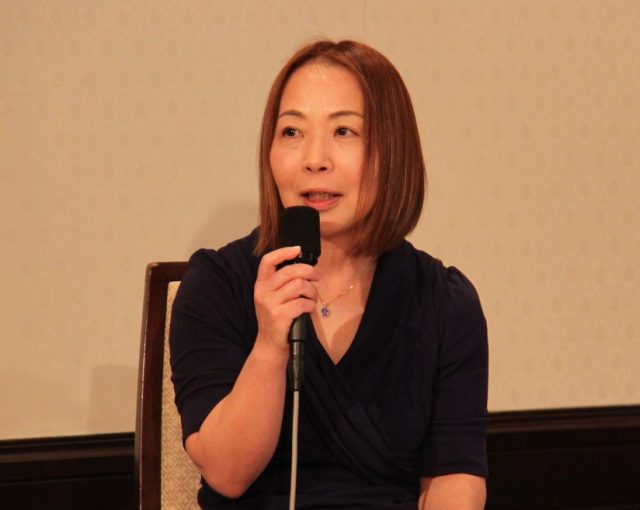INTERVIEW with Megumi Terayama, Managing Director, ESG expert at the Nikko Research Center. For further expert opinions please use the question-level hyperlink.
| The EU and UK, as well as many others, work on ESG-related standards aiming at leadership in the field. Meanwhile, entities like the SEC Investor Advisory Committee urge developing jurisdiction-level standards to avoid other countries imposing their ESG-related requirements on US issuers. What impact do you expect from the competing standards, and what will it mean for asset owners in terms of ESG investing efficiency?
Historically, even in the ESG investing industry, there are often two initiatives for one issue from EU/UK and from US. I’m not surprised to hear SEC wants US standard. Recently, Japanese KEIDANREN (Japanese Business Roundtable) announced that they will develop a new ESG disclosure standard for Japanese companies. Some investment manager said that every week, some kind of new standard has emerged.
I think this tendency is not good for ESG investing. Because institutional investors like pension funds manage huge AUM and inevitably global portfolios. Global Equity is established as an asset class in the pension world. Global equity managers see all companies in the world as an investment universe. They need to compare TOYOTA with GM or Volkswagen. They need to integrate ESG factors globally to select stocks. Global arbitrage could lead to more efficiency of the stock market, which is true in the ESG investing world.
| Back in 2017 after publishing of the Japan Roadmap, PRI outlined that the country was the fastest growing responsible investment market, having previously lagged other markets. How would you assess the respective developments from then on?
This PRI’s assessment mainly came from GPIF’s signing up on PRI in 2015 as the last major public pension signatory in the developed countries. Besides, GPIF is the largest pension pool in the world. PRI and ESG investing industry warmly welcomed this gigantic laggard.
However, PRI declares the importance of ESG integration into the investment processes ultimately for the investment performance. However, the ESG approach GPIF adopted ESG index funds, which is the same as old “best-in-class” which European pensions like French FRR tried a decade ago. We don’t see any major ESG integration progressed in most Japan Equity active funds because GPIF sends the message that they consider ESG scores as ESG integration.
Moreover, GPIF throws their active ownership to their outsourced investment managers. Following GPIF, most pensions in Japan are disinterested in proxy voting and engagement, which are left up to their managers, unlike European public pensions. They found no asset owner in the engagement scene in Japan. For Climate Action 100+, CalPERS instead of GPIF joined the engagement to Japanese companies with Japanese investment managers.
In conclusion, there is still a long way to catch up the EU or US.
| NIKKO Research Center issued an ESG Research Report for the Japanese cabinet in 2016 which was followed by prompt responsible investing developments. What are the current ESG investing core issues in Japan and do you expect the pandemic recovery to affect it in long term?
When you are talking about ESG investing or stewardship, these are about the domestic equity market. Most ESG investors concern listed equity market at first. Long-term stagnation of the Japan Equity market has hampered ESG investing expansion. Domestic corporate pensions allocate only 10% to Japan Equity on average and decrease it year by year. Only GPIF and Bank of Japan keep buying stocks, which counts for more than 10% of market capitalization of the Tokyo Stock Exchange. As I mentioned above, GPIF’s ESG investing and stewardship are limited, so does BOJ. There remain still considerable cross shareholdings. I believe healthy equity market growth is needed to attract ESG investors. Weak corporate governance and lack of climate strategies in Japanese companies are also issues, but more importantly, lack of growth expectation shun away ESG investors as well as mainstreams.
The corona pandemic may light up the true shape of a company and its attitude toward the stakeholders. In Japan, I would like to add its attitude toward the shareholders. Because some companies hold their AGM without financial results. Through the pandemic recovery, I expect some bright sides. The equity investors could be more selective and engage on investee companies more seriously to ask economic rationality or capital efficiency, which is truly ESG investors’ attitude.
| Japan’s environment minister Shinjiro Koizumi lately announced a new policy on domestic coal generation, which has risen after the meltdowns at Fukushima and the following nuclear opposing societal attitudes. Could you please elaborate on this development? Are stranded asset risks also being considered?
As one of industrial policy, the Japanese government has developed the strategies to support Japanese companies to export infrastructures to developing countries, which includes coal generators as one of the main products. Mr. Koizumi suggested to tighten conditions to approve export of coal thermal plant to the cabinet office’s advisory group to develop the export strategy this year and they accepted Mr. Koizumi’s idea. They change a simple efficient coal thermal plant to IGCC or blended fuel with biomass-ish and will consider CCUS in future.
EPA has no power to set a domestic energy policy or coal plant export. Mr. Koizumi put on an act of his leadership to earn points. METI is the minister responsible for the country energy security and industrial policies. So Mr. Koizumi is not a person to announce it. Japanese EPA never involves the export plant on the foreign soil. The Minister of METI or the Prime Minister should by rights.
It doesn’t mean that Japan gives up to export coal generators to developing countries. However, I understand coal thermal may give literally, lights to some Asian people. We have large poor population in Asia. Japan should challenge neutral coal thermal with CCUS for them.
| brief bio
Megumi Terayama, Managing Director, ESG expert at the Nikko Research Center. Previous work experience:
〉Mercer Japan, Senior Consultant, Responsible Investment Global Team ( 5 years)
〉KPMG Business Assurance, corporate risk management consultancy services
〉She holds a bachelor’s degree in economics from Kyoto University and a master’s degree in public affairs from School of Public and Environmental Affairs, Indiana University. CFA, CMA.








